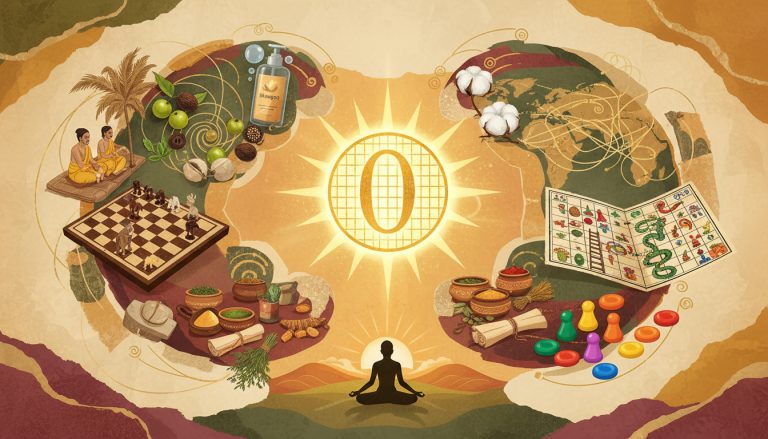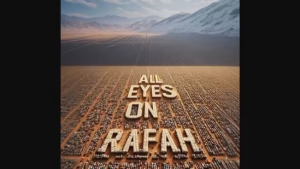In the ever-evolving digital age, social media has become a powerful tool for raising awareness and shaping global narratives. This phenomenon was vividly illustrated with the recent “All Eyes On Rafah” campaign, which drew international attention to the plight of civilians in Rafah, a city in the southern Gaza Strip. As Israeli airstrikes intensified, killing at least 45 civilians, including children, a wave of global outrage spread across social media platforms, leading to a massive outpouring of support for the victims.
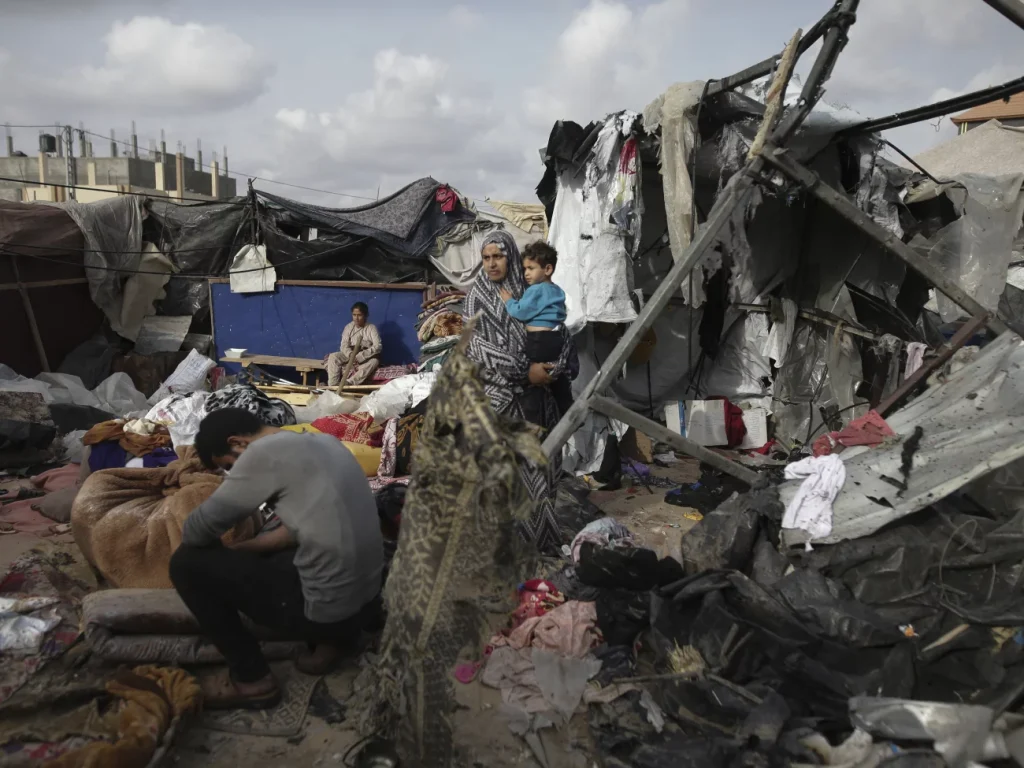
The Catalyst: Rafah Airstrike
The “All Eyes On Rafah” campaign gained momentum following a devastating airstrike on a refugee camp in Rafah by Israeli forces. According to reports from the health ministry in Hamas-run Gaza, the airstrike, which targeted a Hamas weapons facility, inadvertently caused a secondary explosion that resulted in numerous civilian casualties.
The incident triggered a global outcry, with images of the destruction and the innocent lives lost circulating widely on social media.
Celebrities, sportspersons, and millions of other social media users began sharing the “All Eyes On Rafah” image to highlight the humanitarian crisis. The image, which depicted densely packed rows of tents stretching across a desert landscape, symbolized the massive displacement and suffering of Palestinians in Gaza. It quickly went viral, being shared nearly 45 million times on Instagram alone.
A Global Call for Attention
The “All Eyes On Rafah” campaign was not just a social media trend but a heartfelt plea from the global community to stop the violence and protect innocent lives. Prominent figures from Bollywood and Hollywood joined the movement, using their platforms to amplify the message.
Indian celebrities such as Priyanka Chopra Jonas, Alia Bhatt, Kareena Kapoor Khan, and many others shared the image and expressed their solidarity with the people of Gaza.
Alia Bhatt’s poignant message, “All children deserve love. All children deserve safety. All children deserve peace. All children deserve life. And all mothers deserve to be able to give their children those things,” resonated deeply with her followers.
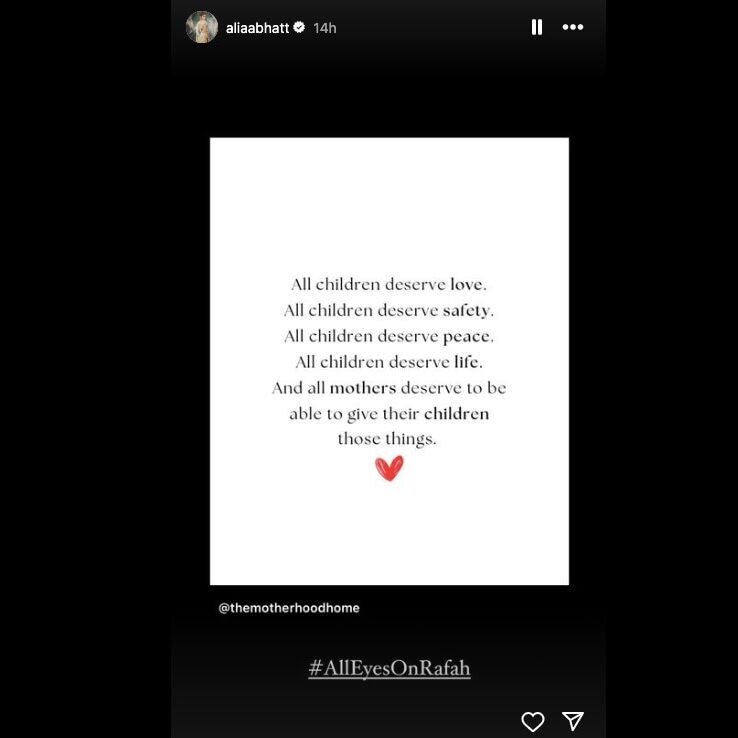
Similarly, international stars like Dua Lipa and Palestinian model Bella Hadid used their influence to draw attention to the crisis. Dua Lipa called for an immediate ceasefire, stating, “Burning children alive can never be justified. The whole world is mobilizing to stop the Israeli genocide, please show your solidarity with Gaza.”
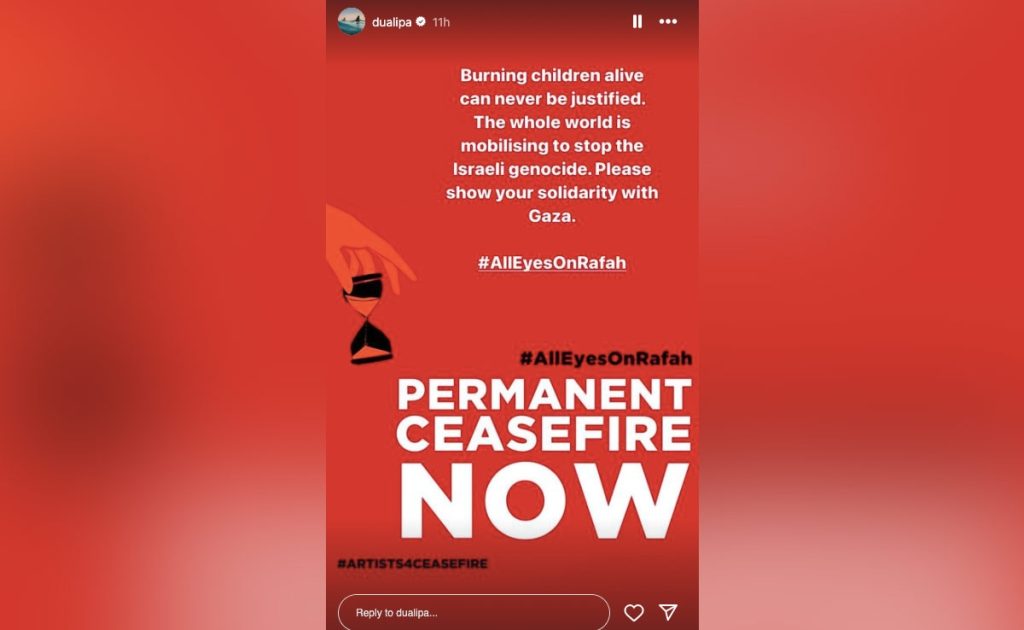
Bella Hadid shared her personal connection to Palestine and emphasized the importance of preserving Palestinian culture amidst the ongoing conflict.
Israel’s Counter-Narrative
In response to the overwhelming support for the “All Eyes On Rafah” campaign, the Israeli government launched its own counter-narrative. Prime Minister Benjamin Netanyahu’s administration posted an image on X (formerly Twitter) with the text “Where were your eyes on October 7?”
The image depicted a Hamas terrorist standing in front of a baby, referencing the horrific attack by Hamas on October 7, which resulted in the deaths of about 1,160 people in Israel, mostly civilians.
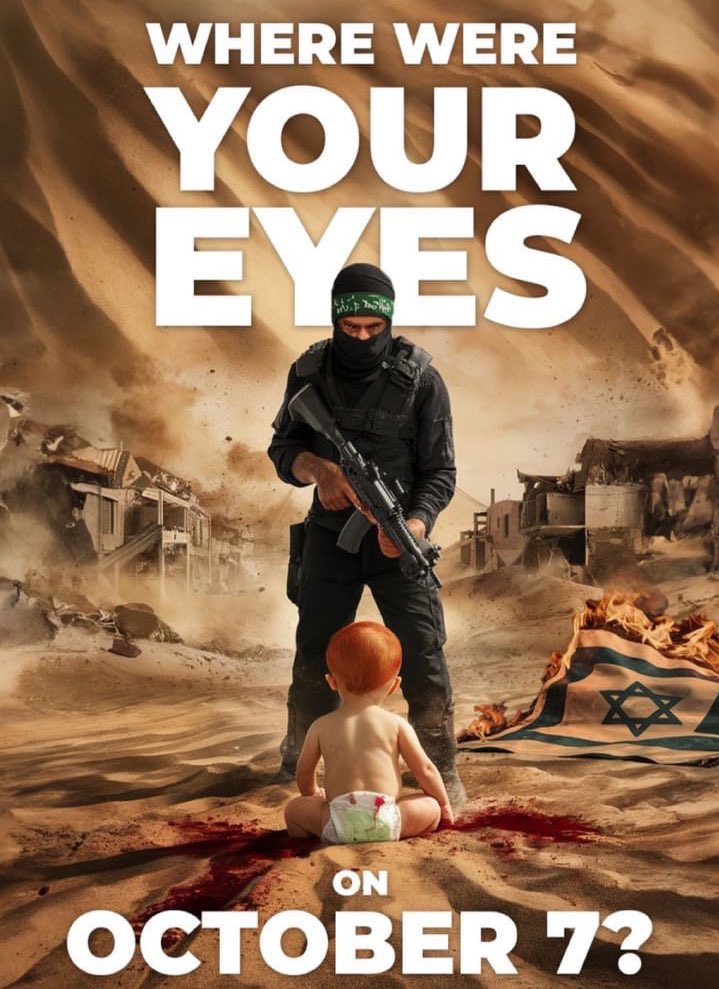
This post was a stark reminder of the brutalities faced by Israelis at the hands of Hamas, highlighting the complexities and the cycle of violence that has engulfed the region. Israel’s message aimed to balance the narrative, reminding the world of the terror inflicted upon its own citizens and the justification for its military actions against Hamas.
The Power of Social Media in Modern Conflicts
The contrasting campaigns, “All Eyes On Rafah” and “Where were your eyes on October 7?” underscore the significant role social media plays in modern conflicts. These platforms have become battlegrounds for public opinion, where narratives are shaped and global sympathies are garnered.
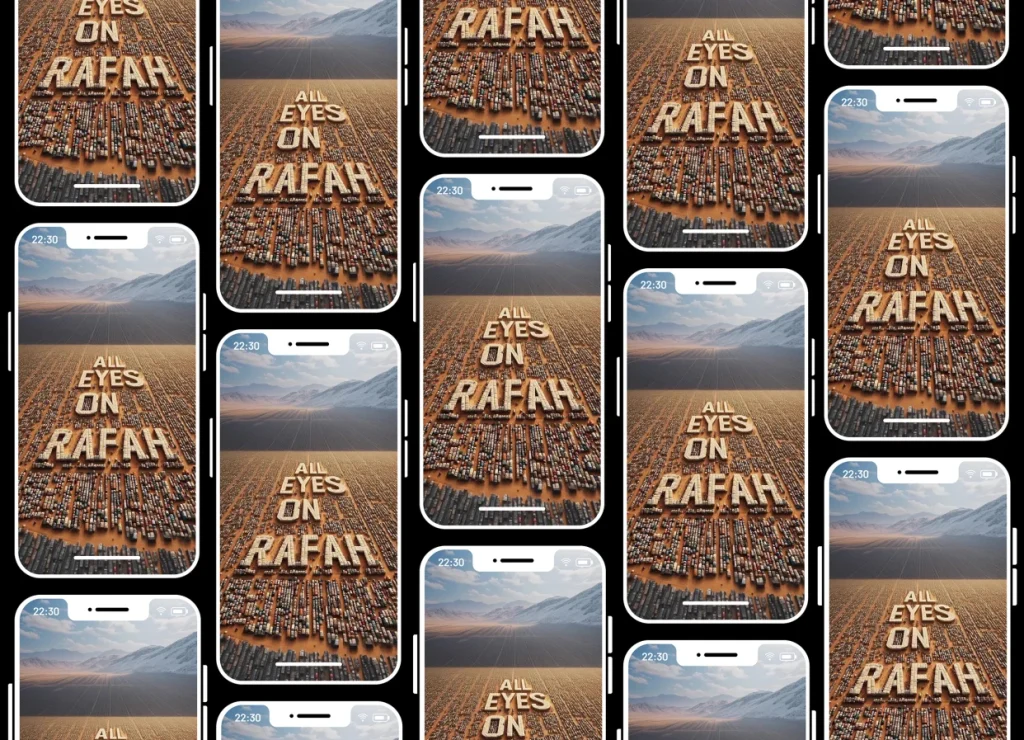
Social media allows for real-time updates and a platform for voices that might otherwise be unheard. In the case of Rafah, the digital campaign brought international scrutiny and pressure, potentially influencing political leaders and international organizations to address the humanitarian crisis more urgently.
However, the digital age also brings challenges. Misinformation can spread rapidly, and the complexities of conflicts can be oversimplified. Both sides of the Israeli-Palestinian conflict have used social media to present their perspectives, each aiming to highlight their suffering and justify their actions. This often leaves global audiences grappling with polarized views and the challenge of discerning the truth in a sea of propaganda.
The Human Cost
Amidst the digital campaigns and the battle for global awareness, it is crucial not to lose sight of the human cost. The lives lost, the families torn apart, and the generations affected by the ongoing conflict in Gaza and Israel are the real stories behind the hashtags.
The “All Eyes On Rafah” campaign and Israel’s counter-narrative both serve to remind us of the profound and tragic human experiences on both sides. Civilians, including children, bear the brunt of the violence, facing death, injury, and displacement. The international community’s focus should be on finding a sustainable resolution that ensures peace and security for all rather than perpetuating cycles of violence.
Moving Forward
The digital mobilization around the “All Eyes On Rafah” campaign has shown the potential of collective action in raising awareness and pushing for change. As global citizens, our responsibility is to remain informed, critical, and compassionate.
While social media can highlight specific incidents and drive immediate action, long-term solutions require sustained engagement, dialogue, and understanding of the deep-rooted issues.
To sum up, as the world continues to watch and react, it is essential to remember that behind every post, image, and hashtag are real people enduring unimaginable hardships.
Our collective efforts should aim for a future where peace and justice prevail, ensuring that no more eyes have to turn towards another tragedy, whether in Rafah or anywhere else in the world.


